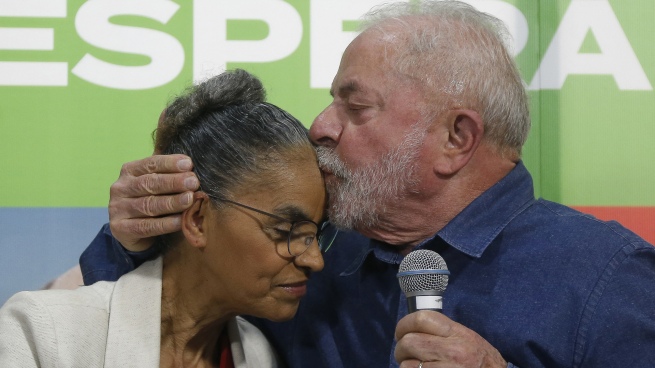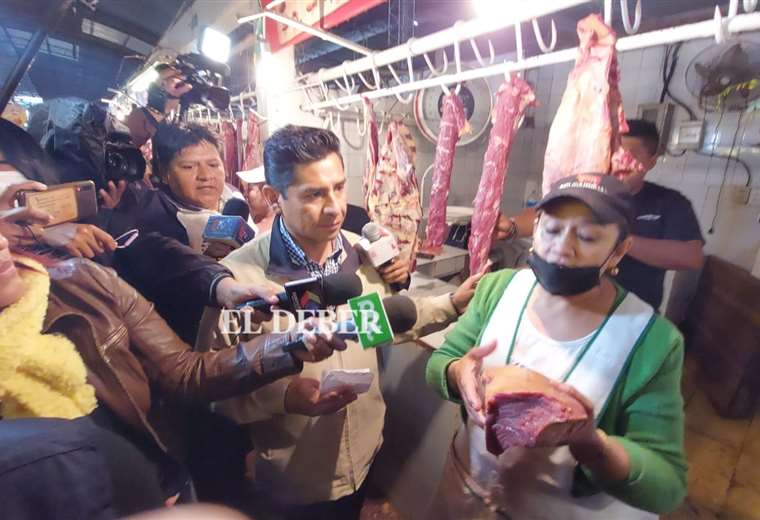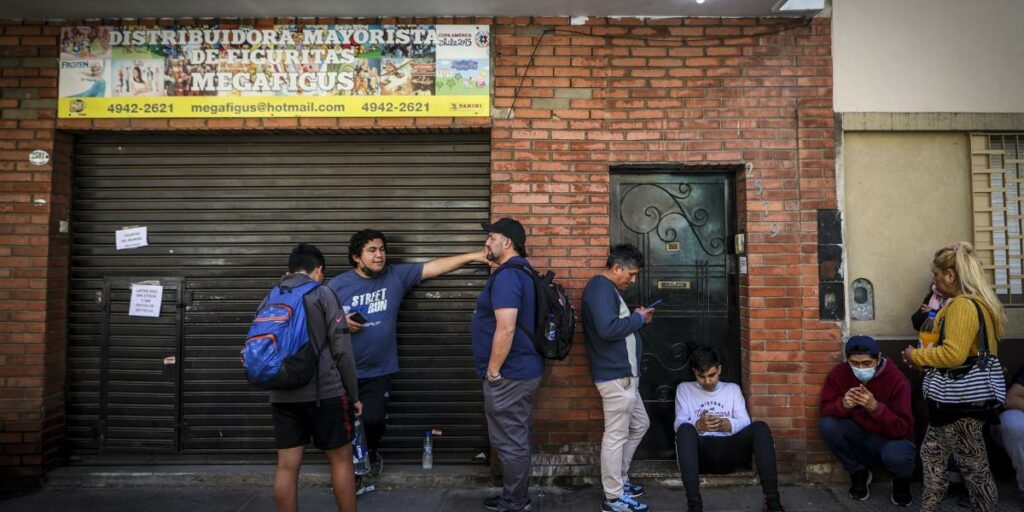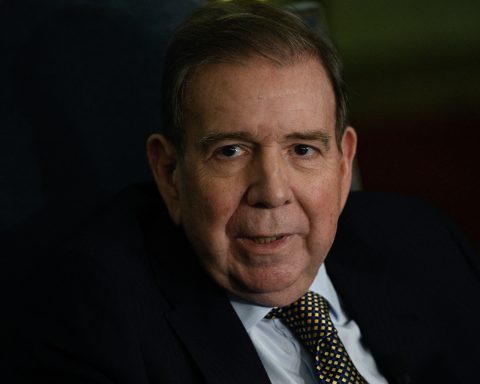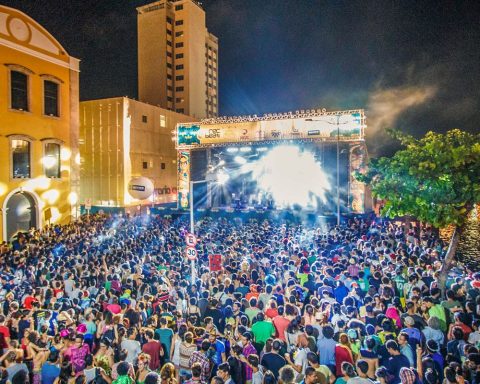The former Brazilian Environment Minister Marina Silvawho this month formalized his support for former president Luiz Inácio Lula da Silva for Sunday’s elections, told Télam that he changed his position after years of confrontation with the leader of the Workers’ Party (PT) thanks to the fact that he assumed an agenda of “sustainable development”, in addition to criticizing President Jair Bolsonaro for promoting a “kind of theocratic government”.
Silva was a senator in different periods between 1995 and 2011, and only interrupted that task between 2003 and 2008, when she led the environmental portfolio in the two Lula governments. In 2008, after disagreements, she left the PT, with which she had been affiliated for more than two decades.
On September 12, he reconciled with Lula, after having rivaled the PT in the last three presidential elections.
By formalizing her adherence to the campaign of her former political boss, the leader of the Sustainability Network (REDE) party allowed Lula to add high-profile support, especially as an environmentalist and evangelical referent, to shore up her center-left coalition before the vote. of October 2.
Silva also spoke with Télam about the relationship between politics and religion and the potential danger that the president will not recognize an adverse result at the polls.
– Why did you decide to support Lula’s candidacy after a distance that lasted years and during which you were political rivals?
– It was from a programmatic conversation. Based on the public commitments assumed by President Lula in his government program, with the agenda of sustainable development, the protection of the Amazon, the indigenous peoples, the fight against inequalities and the strengthening of democracy, I expressed my support for your candidacy. No one better than former President Lula to recover this agenda, which began in 2003 in his government and has now been destroyed by Bolsonaro. It is essential to preserve democracy so that we have the opportunity to rebuild ourselves based on what we have learned.
– You are an evangelical and you also defend the idea of a secular State. What do you think of the way in which the President handled that separation?
– I think that Bolsonaro and the evangelicals who follow him are generating tremendous confusion. When they try to pass off the idea that Brazil can have a kind of theocratic government, they do a disservice to critics of the evangelical Christian faith. Many evangelicals, like me, do not agree with this manipulation of politics in relation to faith and of faith in relation to politics. The Brazilian Government and State are secular and that is a contribution of the Protestant Reformation, which is very important to have public policies that do not exempt people; or based on whether they believe or not, or ethnicity, sexual orientation, economic and cultural status. Evangelicals cannot separate themselves from their own legacy.
– How would you define the government that exists today in Brazil?
– Today, with a figure like Bolsonaro, there is a corruption of democracy itself. The reality we have is incomparably more serious than the one we already had. But we cannot forget that there is a starting point and that it was very strong because it increased polarization. What I hope is that now we learn that this is not good for democracy, or for public policies, or for the progress of a country, and we can overcome all this, defeating Bolsonaro and stopping Bolsonarism.
– He locates the polarization before the current government, but also talks about making an apprenticeship to build something new.
– I hope that this movement seeks the reconciliation of Brazil with itself. And a reconciliation cannot be based on the same situations that led to the division. It has to be built on a process of change. There is no way to reconcile in an environment of machismo, racism or prejudice against indigenous people and the LGBT population. The proverb says that stupid are those who do not learn from their own mistakes. We now have an opportunity to create a more democratic, diverse, and secure political environment.
– The day he made his support for Lula official, he spoke of “the evil seed of Bolsonarism that is installed.” Do you think that these sectors, in case of an adverse result, will accept defeat?
– There is a deterioration of the Brazilian political-social fabric due to the incitement to hatred carried out by Bolsonaro and his group. But there is also a great civil society movement to make Bolsonaro’s defeat so clear and so forceful that it can create a process of inhibition of those forces that can try to create some kind of agitation. In addition, we will have to be industrious so that the democratic and law-abiding institutions avoid any confrontation that goes beyond the framework of a civilized democracy.
– Do you expect the international community to make a statement?
– We expect immediate recognition by the international community of the victory of the chosen one, who I hope will be former President Lula, making it very clear that there is no possibility of questioning the sovereign will of the people. In addition, we expect any support for democracy and against any adventure of Bolsonaro.
– What do you expect from Sunday’s election?
– More than achieving a change of who is in power, we create a new environment for a change in the reality of Brazil, based on what we learned from the past, which was not good, that now can help us build in the present A better future.
– In the book “It was always about us”, by Manuela D’Ávila, a compilation on gender-based political violence in Brazil, she spoke of “fake news” as the “most prosperous commodity in the contemporary market.” Could you explain?
– In a figurative sense, it is as if a new product had entered Brazilian politics since 2014 and that it spread outside of Brazil. They are lies as a form of biography deconstruction. This causes serious damage to democracy and the alternation of power. When democracy manages to flow, without the interruptions of authoritarianism, we prevent those mechanisms from deepening and ending up generating what we have today in Brazil.
– Can you imagine holding a position again in a possible Lula government?
– I think at this moment it is more important to be in the right place to make Brazil victorious. I presented proposals that were accepted by Lula and that are being considered highly relevant so that Brazil can walk in the direction of combating inequalities, with sustainability and democracy, and help create a new cycle of prosperity. The composition of the government depends on President Lula. Now we have to win the elections.
